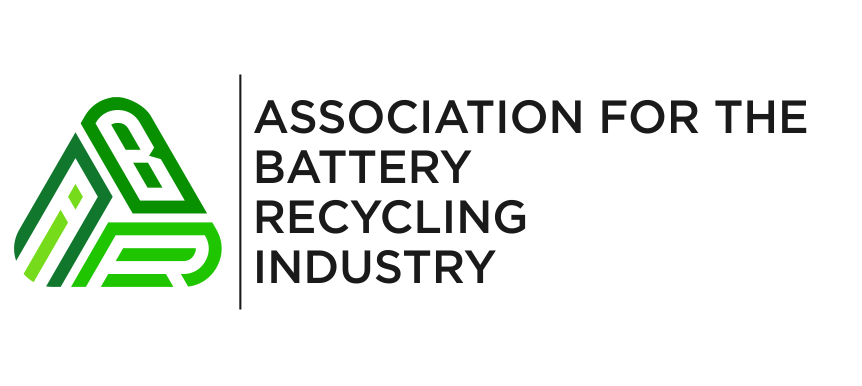18 August 2025
1.Launch of ABRI 2025-2030 Corporate Strategy
ABRI is pleased to launch its 2025-30 Corporate Strategy - a clear step forward in setting out how ABRI will deliver its mission to power a circular value chain for batteries to accelerate Australia’s journey toward sustainable decarbonisation. The one page Strategy summary follows this bulletin article.
Thank you to all members who shared their feedback at the 2025 Australian Battery Recycling & Manufacturing Summit and through the recent survey. Your feedback has directly shaped the strategy. Based on your input, ABRI has made the following changes:
Clarified ABRI’s role — Emphasising that ABRI represents its members in all its actions
Strengthened capabilities — Adding technical and regulatory expertise as a critical enabler.
Prioritised safety — Affirming safety as a cornerstone of the battery circular economy and embedding it within ABRI’s strategic objectives and activities.
Action on industry standards through an additional priority to update ULAB packaging and transport guidelines.
Expanded policy focus — Adding a battery reuse and repurposing working group, in addition to ULAB and extended producer responsibility (EPR) groups.
ABRI has already begun putting the Strategy into action, starting with the development of an industry profile and priority policy advocacy working groups. Further details on the development of the industry profile are below and details on working groups will be provided in the next bulletin.
Member involvement is what drives ABRI’s success. ABRI encourages all members to engage by sharing your ideas and getting involved in these initiatives. Working together as an industry, we can make a real and lasting impact on achieving outcomes to support businesses and drive growth.
2. Industry profile: the critical role of Australia’s battery recycling sector
ABRI is developing an industry profile to raise awareness about the battery recycling industry and the role it plays across Australia. This will support ABRI and members in government advocacy and engagement.
The profile is proposed to be a key facts document setting out information such as economic benefits (jobs, investment, economic contribution); critical role of the sector in clean tech/circular economy transition and consequent urgency for government action to support the industry. It is important to acknowledge the: longstanding role and success story of used lead acid batteries; the growth opportunities of lithium battery reuse, repurposing and recycling; and developments in other battery chemistries.
ABRI is planning to release the profile in early 2026 and the Executive Committee is currently finalising a scope of works.
Please email suggestions on this initiative to secretariat@batteryrecycling.org.au
3. Mandatory producer responsibility gaining momentum for batteries with low recovery rates
Government activity is gaining momentum to implement mandatory extended producer responsibility (EPR) for batteries with low recovery rates i.e. lithium and products with embedded batteries. For the used lead acid battery sector, this presents an opportunity to seek synergies to progress priorities, such as improvements to management of the hazardous waste export processes. However, it will also be important to highlight the differences in market structure and resource recovery rates between lead acid and lithium batteries as a one size fits all solution may not be appropriate.
On Friday 15 August, ABRI CEO, Katharine Hole, met with the Office of Senator The Hon Murray Watt, Minister for the Environment and Water, to highlight the urgent need for: a statement of support for the domestic battery recycling industry; and improvements to the hazardous waste export permit process, including compliance action on ‘illegal’ ULAB exports.
NSW Draft Lifecycle Producer Responsibility Regulation (late August/September)
NSW EPA consultation on the draft regulations for the NSW Lifecycle Producer Responsibility Act is scheduled for September. The consultation will be on two draft documents: Draft Regulation; and Draft regulatory impact statement. The consultation will be for four weeks as is required for preparing a Regulation and any interested party can make a submission. ABRI understands that the NSW EPA is still considering whether to hold a formal information session for industry.
The NSW EPA is also developing a Draft Action Plan Template that sets out how product stewardship organisations under the Act (either industry schemes or individual organisations) will meet their requirements as a scheme operator. This includes facilitating a collection network, safety and education. The Template is a guide developed by the NSW EPA to support implementation of the Regulation. The final Action Plan Template content is dependent on the final Regulation so it is at an earlier stage of development.
ABRI has been invited to an early stakeholder engagement session on 26 August and has been advocating with the NSW EPA that all B-cycle accredited participants should be included in this early stakeholder session.
Solar panel national mandated producer responsibility scheme – implication for home energy and grid scale batteries
NSW is leading development of a national mandated scheme to prevent solar panels ending up in landfill, instead directing them towards remanufacture or recycling. This will support agreement amongst Commonwealth, state and territory governments to progress work towards a national product stewardship scheme for solar panels, ensuring they are managed from start to end of life.
There is no timeframe given publicly for this work.
Whilst not including batteries, the NSW EPA media statement on Friday 18 August said that “The draft [Regulatory Impact Statement] will help the Government evaluate options for a national mandatory product stewardship scheme that could catalyse a national recycling and reuse sector for solar panels and their batteries.”
ABRI will continue to engage closely with the Commonwealth and NSW Governments in the development of the solar panel scheme in order to understand the implications for energy storage batteries.
4. Building the Industry’s Voice - out and about with ABRI
14 August - media release - joint with ACOR, WMRR and Smart Energy Council Industry United in Urgent Need for National Mandatory Battery EPR Scheme Now!
